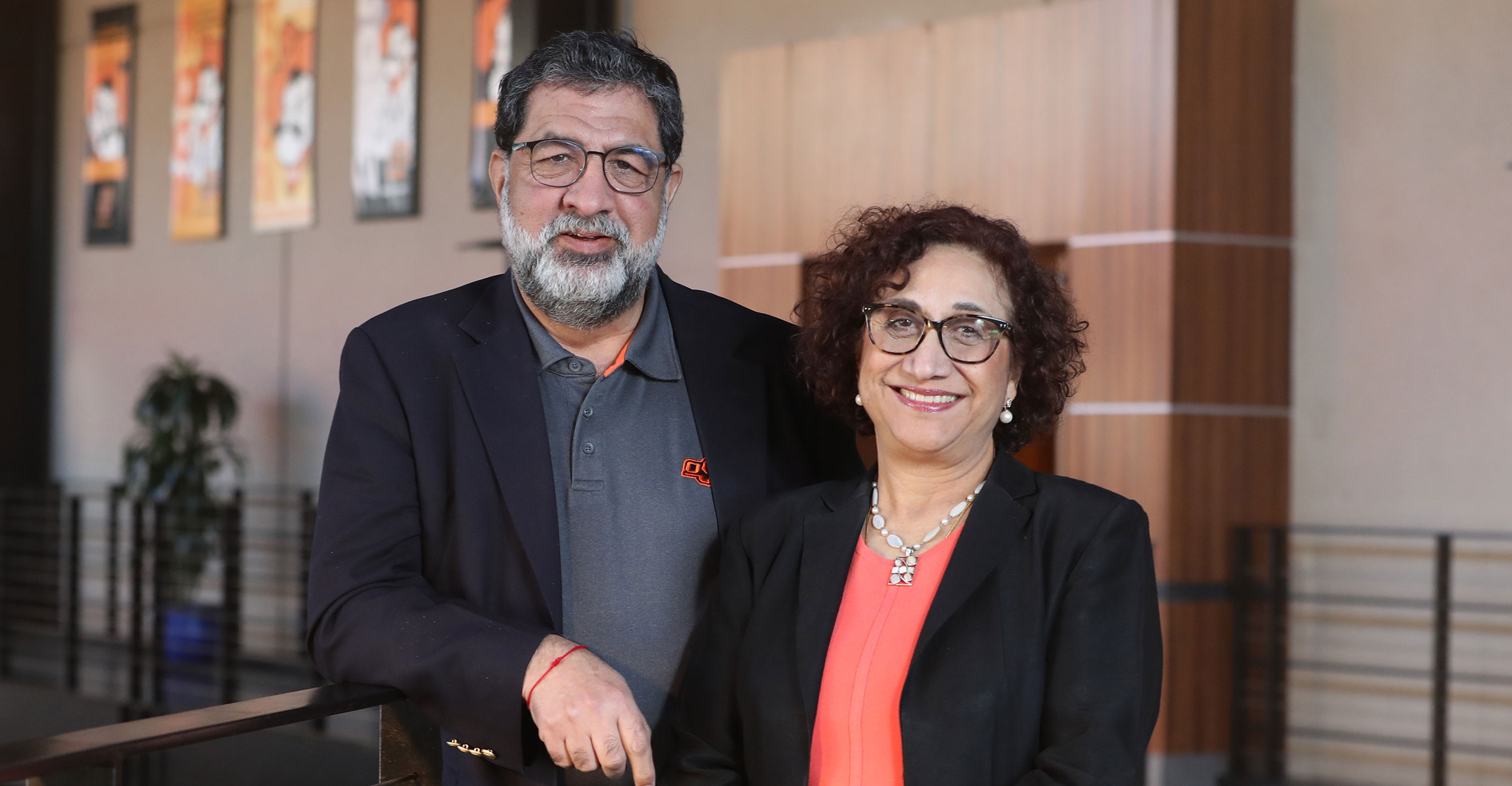
Scientist spouses team up to research urinary tract infections, treatments
Friday, January 20, 2023
Media Contact: Sara Plummer | Communications Coordinator | 918-561-1282 | sara.plummer@okstate.edu
Urinary tract infections, or UTIs, are one of the most common bacterial infections in the world, resulting in about a million hospital admissions each year in the United States alone.
Rashmi and Anil Kaul, Oklahoma State University Center for Health Sciences professors and spouses, recently published their research into recurrent UTIs and possible alternative treatments.
Rashmi Kaul, Ph.D., is a professor of immunology in the Department of Biochemistry and Microbiology, and Anil Kaul, M.D., is a clinical professor and director of OSU’s High Complexity Clinical Laboratory.
While both men and women get UTIs, women are more susceptible, Rashmi Kaul said, adding that about half of all women will have a UTI in their lifetime, and of those, 20% to 30% will have recurring UTIs.
In certain patients, chronic infections can lead to cancer and in pregnant women can lead to premature birth, she said. And if left untreated for too long, UTIs can move from the bladder to the kidneys where it can cause pain and swelling and even kidney failure.
Rashmi Kaul said their research looked at why pregnant and post-menopausal women get more UTIs, and they found estrogen levels can be a factor.
“Our research has shown high levels and low levels of estrogen are bad for the immune system,” she said. “Estrogen, which is produced by women and men, is a mother hormone. It can impact immunity.”
“Estrogen, which is produced by women and men, is a mother hormone. It can impact
immunity.”
Estrogen works by binding to receptors on cells, and once that happens, estrogen can impact the innate or early immune system. The E. coli bacteria that cause recurring UTIs form dormant colonies in the bladder until something happens that changes a person’s immune system.
“When the immune system is compromised — through conditions like pregnancy, diabetes, HIV, etc., — those colonies become active,” Rashmi Kaul said. That's when infection occurs.
The research team studied three estrogen receptors and found that in two of the three receptors when a specific chemical is introduced and binds to the receptor, it reduces bacteria in the bladder or kidneys. This suggests that drugs targeting specific estrogen receptors may boost immune responses in the urinary tract.
Their research found when the third estrogen receptor was blocked or inhibited from binding, bacterial growth decreased. Further research may lead to alternative treatments for UTIs.
Right now, antibiotics are typically prescribed to treat UTIs, but that treatment for one of the most common infections in the world could become more challenging as antibiotic resistance grows.
“Antibiotic resistance is a major global health care issue,” Anil Kaul said. “Each year, approximately 40,000 people die because of antibiotic-resistant infections, with about 3 million infections occurring in the U.S.”
The team’s research also looked at possible alternative treatments for UTIs, including the use of nanodiamonds — carbon-based nanoparticles that can deliver medication to specific areas in the body.
According to their research, nanodiamonds are less harmful to living tissue than other nanoparticles and they can be internalized by cells, so bacteria such as E. coli can be targeted. This internal, localized treatment means UTIs could possibly be treated with lower doses and without oral antibiotics that can lead to antibiotic resistance and may alter good bacteria in the gut.
Anil Kaul said plans are already underway to continue research into UTIs and future treatments.
“We will continue to investigate the role of estrogen receptors in not only preventing recurring infections, but also develop novel approaches to treat these infections, including the use of antibiotic-coated nanoparticles,” he said.
Read more about their recently published research Finding novel treatment strategies for UTI through oestrogen receptors.
